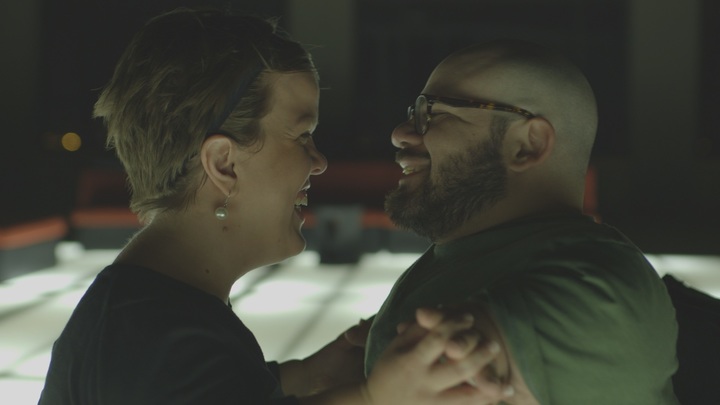'Juliet, Naked'
If there’s anyone who has turned fan obsession into a wellspring of observant comedy, it’s novelist Nick Hornby, whose has seen successful adaptations of his books “High Fidelity” (with John Cusack as a morose record-store owner) and “Fever Pitch” (twice, once with Colin Firth as a luckless Arsenal supporter, the other with Jimmy Fallon as a constantly disappointed Red Sox fan).
With “Juliet, Naked,” in which director Jesse Peretz (“Our Idiot Brother”) tackles a Hornby novel, fan obsession, self-reinvention and romances old and new combine for a charmingly off-kilter comedy.
Duncan (Chris O’Dowd) has two loves in his life: His longtime girlfriend Annie (Rose Byrne), and the musical genius of Tucker Crowe. Duncan maintains a fan website dedicated to Crowe, a reclusive singer-songwriter who recorded one album in the ‘90s, “Juliet,” and then disappeared from view. On the website, Duncan trades theories with other fans about the hidden meanings in each of the album’s songs, and rumors about the musician’s whereabouts.
As she approaches 40, Annie realizes that Duncan, with whom she has lived for 15 years, is more in love with Tucker Crowe’s mystique than he is with her. Who could blame him, Annie tells her lovelorn lesbian sister Ros (Lily Brazier), bemoaning the fact that she’s done little with her life other than maintain the tatty local museum she inherited from her late father.
One day, a CD arrives in the mail, labeled “Juliet, Naked.” Annie finds it before Duncan arrives home, and impulsively listens to it. The disc turns out to be a never-released solo acoustic demo, recorded by Crowe. Annie’s not impressed, so when Duncan listens to it and declares it a masterpiece, Annie counters by posting a pseudonymous, and negative, review on Duncan’s website.
Then something unexpected happens: Annie gets an email from the long-missing Tucker Crowe (played by Ethan Hawke), agreeing with her. Soon Annie and Tucker are trading emails, which get quite personal. That’s when Peretz — in a script written by his sister Evgenie, and by married screenwriters Jim Taylor (“Sideways”) and Tamara Jenkins (“Slums of Beverly Hills”) — gives us the details of Tucker’s not-so-mysterious and somewhat sad life.
When Peretz introduces Tucker into the mix, it throws a much-needed wrench into what was a gently melancholy story of a stagnant romance. While Tucker is forced to reconcile his hard-living past with his ramshackle present, as he’s confronted by his long-estranged daughter Lizzie (Ayoola Smart), it shakes up Annie, helping her realizing Duncan and her sleepy little town aren’t the only options in her life.
O’Dowd is hilarious as the arrogant academic who has inflated Tucker’s one artistic product into the second coming of Bob Dylan. Hawke is excellent at a role that’s becoming his signature, the jaded middle-aged ex-hipster.
Byrne, easily one of the most talented comic actors of our age (see “Bridesmaids” and “Spy” for examples), shines here. She makes every moment of Annie’s emotional awakening, as she enjoys Tucker’s attention and the thrill of keeping it from the one person who would freak out over that information, both funny and fully rooted in truth. It’s a thoroughly delightful performance, one that gives “Juliet, Naked” a jolt of comic energy.
——
‘Juliet, Naked’
★★★
Opened August 24 in select cities; opens Friday, August 31, at the Broadway Centre Cinemas (Salt Lake City), Century 16 (South Salt Lake), Megaplex Jordan Commons (Sandy). Rated R for language. Running time: 105 minutes.







